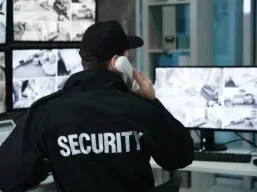Private investigators are tenacious, ever-curious professionals with an excellent eye for detail. They conduct investigations for individual and corporate clients, often involving relationship matters, character enquiries, unfair dismissal cases, insurance claims, and locating missing persons. Private investigators may also perform duties as process servers.
The field of private investigation is growing in popularity as more Australians seek third-party assistance for various investigative needs. This trend has led to increased enrolment in private investigator courses such as the Certificate III in Investigative Services. Read on to learn how to become a private investigator in Australia.
What Do Private Investigators Do?
Private investigators conduct research and obtain information for their clients on personal or criminal matters. They may also assist in locating missing persons or witnesses through surveillance. After gathering information through various means, including personal observation and interviews, private investigators maintain detailed records of their findings. Their work may involve undercover operations, asset and liability checks, investigating property theft, and providing security advice.
Main Tasks and Duties
Private investigators are responsible for:
- Attending court to give evidence
- Researching relevant laws and policies
- Taking client briefs
- Conducting thorough research
- Performing surveillance
- Recording observations
- Collecting evidence through photos or videos
- Interviewing witnesses and relevant parties
- Writing comprehensive reports
- Presenting progress updates to clients
Working Conditions
Private investigators often work independently but may also collaborate with companies and solicitors. Their work environment varies from office settings to field operations. The job frequently involves local travel, with occasional long-distance trips as required by cases. Work hours are flexible, often including evenings and weekends to accommodate investigation needs.
How to Become a Private Investigator
To become a private investigator in Australia, follow these steps:
- Complete a nationally accredited Certificate III in Investigative Services (CPP30619) through a Registered Training Organisation.
- Gain practical experience through a traineeship with a private investigation company.
- Obtain a private investigator licence from your state or territory’s regulatory authority. Requirements may include a National Police Check.
Steps to Get a Private Investigator Licence
Licensing requirements vary across Australian states and territories. Here’s a guide for obtaining a licence in Queensland:
The Security Providers Act of 1993 governs private investigators in Queensland. The Office of Fair Trading QLD issues licences based on the following criteria:
- Minimum age of 18 years
- Successful completion of an OFT-approved training course
- No risk to public safety
- Suitability to hold the licence
Contact Queensland’s Office of Fair Trading for specific licensing requirements in that state.
Pursuing a Career in Private Investigation
If you’re interested in joining the investigative services industry, consider enrolling in a private investigator course. The Australian Training Institute offers the Certificate III in Investigative Services to prepare you for a career in private investigation across Australia. Visit ATI’s website to learn more about their course offerings.
This career path is open to individuals from diverse backgrounds, and the skills acquired can be valuable in various professional contexts. As with any career choice, it’s important to research thoroughly and consider your personal strengths and interests when deciding if private investigation is the right path for you.



